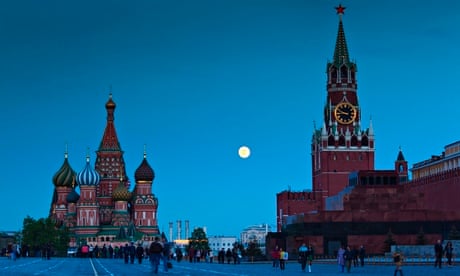Russia's legislature, often accused of metaphorically turning back the clock, has decided to do it literally – abandoning the policy of keeping the country on daylight-saving time all year. The 2011 move to impose permanent "summer time" in 2011 was one of the most memorable and least popular initiatives of Dmitry Medvedev's presidency. It forced tens of millions to travel to their jobs in pitch darkness during the winter. In the depths of December, the sun doesn't clear the horizon in Moscow until 10am.
The State Duma, the lower house of parliament, voted 442-1 on Tuesday to return to standard time this autumn and stay there all year.
Meanwhile, a Russian ban on swearing in films, plays and books came into force on Tuesday, a policy designed to appeal to conservatives but which Vladimir Putin's critics condemned as a further move against free speech.
Films containing "foul language" will be banned from wide release and books with swear words will have to be sold in sealed packages with obscenity warnings. Theatres will not be allowed to stage productions containing obscenities according to the law, which imposes fines of up to 50,000 roubles (£849) for each infraction.
Russian media have reported that software known as the "swear-bot" will be used to police cursing on the internet.
The law is meant to ensure "the protection and development of linguistic culture," according to a statement on the Kremlin's website. But critics say it is reminiscent of Soviet-era censorship and will suppress free expression.

Comments (…)
Sign in or create your Guardian account to join the discussion